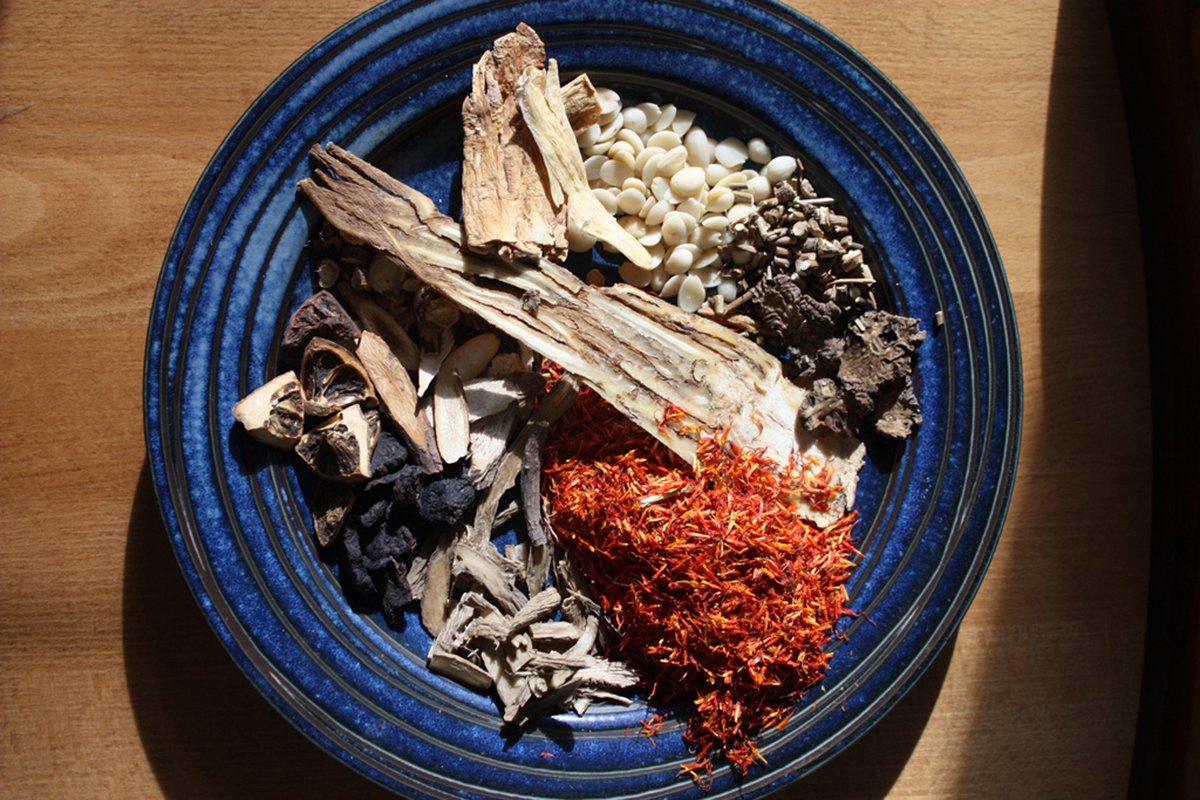Table of Contents
Risks of Homeopathic Treatments for Babies
Homeopathic treatments are generally thought to be safe, however, warnings have been issued about giving unlicensed teething remedies to babies. Parents have been warned that unlicensed teething remedies cause serious side-effects, including: seizures, lethargy, difficulty breathing, trouble urinating, constipation, and agitation.
Drug Interactions with Herbal Remedies
People assume herbal remedies are safe, because they are natural. However, that's not always the case. They are an especial risk if you are on prescribed medications.
A German study found that St. John's Wort was as effective an antidepressant as Prozac at treating depression. However, it interacts with the oral contraceptives and blood-thinning medications such as Warfarin and may cause side-effects such as dizziness and stomach cramps. A competent herbal therapist will not prescribe St. John's Wort to a person for whom they are contraindicated, but an unlicensed practitioner might lack the medical knowledge to know otherwise.

To be doubly safe, always discuss new herbal remedies with your own doctor. A competent, licensed herbal therapist will have no problem with you doing this.
If you want to see a herbal therapist in the UK, the National Institute of Medical Herbalists [see links] maintains a list of practitioners who are trained to degree standard and have at least minimal medical skills.
Serious Illness and Naturopathy
Recently in the UK, a four-year-old boy with severe autism was admitted to hospital. He was seriously ill, with toxic levels of calcium and Vitamin D. It transpired he had been seeing a naturopath, who had told his parents to feed him 12 separate supplements daily. It was these supplements that had made him so ill, causing vomiting, weight loss, anorexia and constant thirst.
In another case, Dawn Page from Oxon was left with permanent brain damage after being told to drink six litres of water a day (three times the recommended safe limit) to detox and lose weight. The same naturopath gave lectures where she told hopeful listeners that she could treat cancer with skin compresses of urine and caster-oil.
READ What Can Patients Expect When Visiting a Naturopathic Doctor?
A researcher for consumer-champion Which? (who had breast cancer) went around 15 naturopaths, seeking advice. 14 offered dangerous and misleading treatments (with one telling her not to return to her oncologist, but merely to abstain from sugar).
However, it isn't only the largely-unregulated treatments of naturopathy that can cause serious and permanent-damage. The lack of a single regulatory and training body means that serious illnesses can be missed. One reporter went to several naturopaths, describing symptoms of bowel cancer (and even told them that it had killed her father). Not one picked it up (though some did suggest she might be perimenopausal, and one told her to stop eating prawns).
How to Protect Yourself from Unlicensed CAM Practitioners
As more people use CAM practitioners, more regulation is being considered by governments. In the meantime, you should ensure that you see a practitioner who is represented by a regulated body, where possible. In addition to the bodies above, there's the Complementary and Natural Healthcare Council, UK [see links].
However, once you've found a CAM practitioner, you should always ask the following questions before treatment:
- What are their qualifications? How many years' training do they have? Many CAM practitioners, especially naturopaths and herbalists, undertake short courses with paid colleges on the internet. Look for degree-level qualifications, and insist on seeing documentation.
- How many people have they treated with your condition? Ask for references.
- What is the cost of the treatment? How long will the treatment last?
- Are there any potential side-effects? How many people have side-effects?
- Is there anyone that shouldn't use this treatment?
- Should you see your own doctor before attending? Particularly ask this to osteopaths and chiropractic therapists (some people, such as those with leukaemia, osteoporosis, or spinal problems shouldn't have these treatments). Be suspicious of any CAM practitioner who wants you to see no healthcare practitioner but them.
- Are they a member of the regulatory bodies? See documentary proof, and check the body is one with rigorous requirements. Check the complaints' system.
- Are they insured? See documentary proof.
- How should you prepare for treatment?
Don't play games with your health.
- nccih.nih.gov/research/statistics/2007/camsurvey_fs1.htm
- www.ncbi.nlm.nih.gov/pmc/articles/PMC2951167
- www.nhs.uk/Livewell/complementary-alternative-medicine/Pages/complementary-alternative-medicines.aspx
- www.nhs.uk/Conditions/homeopathy/Pages/Introduction.aspx
- www.nhs.uk/news/2012/09September/Pages/Acupuncture-has-hidden-dangers.aspx
- www.nhs.uk/conditions/Osteopathy/Pages/Introduction.aspx
- www.nhs.uk/conditions/Acupuncture/Pages/Introduction.aspx#NHS
- www.nhs.uk/conditions/chiropractic/Pages/Introduction.aspx
- www.nhs.uk/Conditions/chiropractic/Pages/Safetyandregulation.aspx
- www.nhs.uk/conditions/herbal-medicines/Pages/Introduction.aspx
- www.nhs.uk/Conditions/chiropractic/Pages/Safetyandregulation.aspx
- www.nhs.uk/news/2012/09September/Pages/Acupuncture-has-hidden-dangers.aspx
- www.mayoclinic.org/tests-procedures/chiropractic-adjustment/basics/risks/prc-20013239
- whatstheharm.net/chiropractic.html
- www.cancerresearchuk.org/about-cancer/cancers-in-general/treatment/complementary-alternative/therapies/chiropractic-treatment
- www.naturopathy-uk.com/home/home-what-is-naturopathy
- www.gov.uk/government/news/parents-advised-not-to-use-unlicensed-homeopathic-teething-products-in-infants-and-children
- www.telegraph.co.uk/news/health/alternative-medicine/6466718/Just-how-safe-are-herbal-medicines.html
- www.dailymail.co.uk/health/article-2103988/The-nutrition-therapists-health-risk.html
- www.dailymail.co.uk/news/article-3826169/Doctors-issue-warning-alternative-therapy-treatments.html
- genesis-chiropractic.com/controversial-video-your-body-can-cure-cancer-naturally.html
- Photo courtesy of andrewbain: www.flickr.com/photos/andrewbain/3428360991/
- Photo courtesy of andrewbain: www.flickr.com/photos/andrewbain/3428360991/
- Photo courtesy of pathwithpaws: www.flickr.com/photos/pathwithpaws/5638185450/


Your thoughts on this